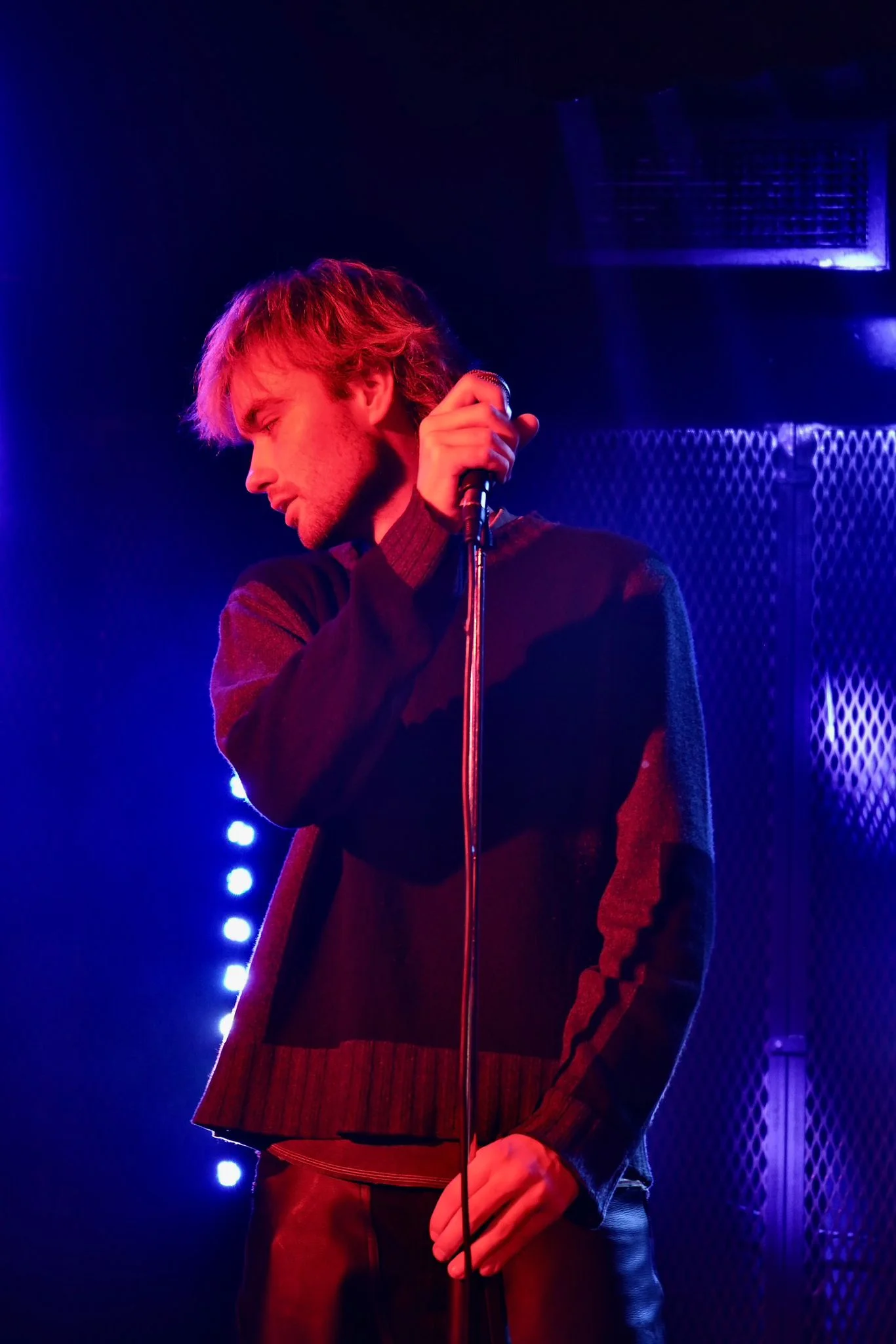Team Syren
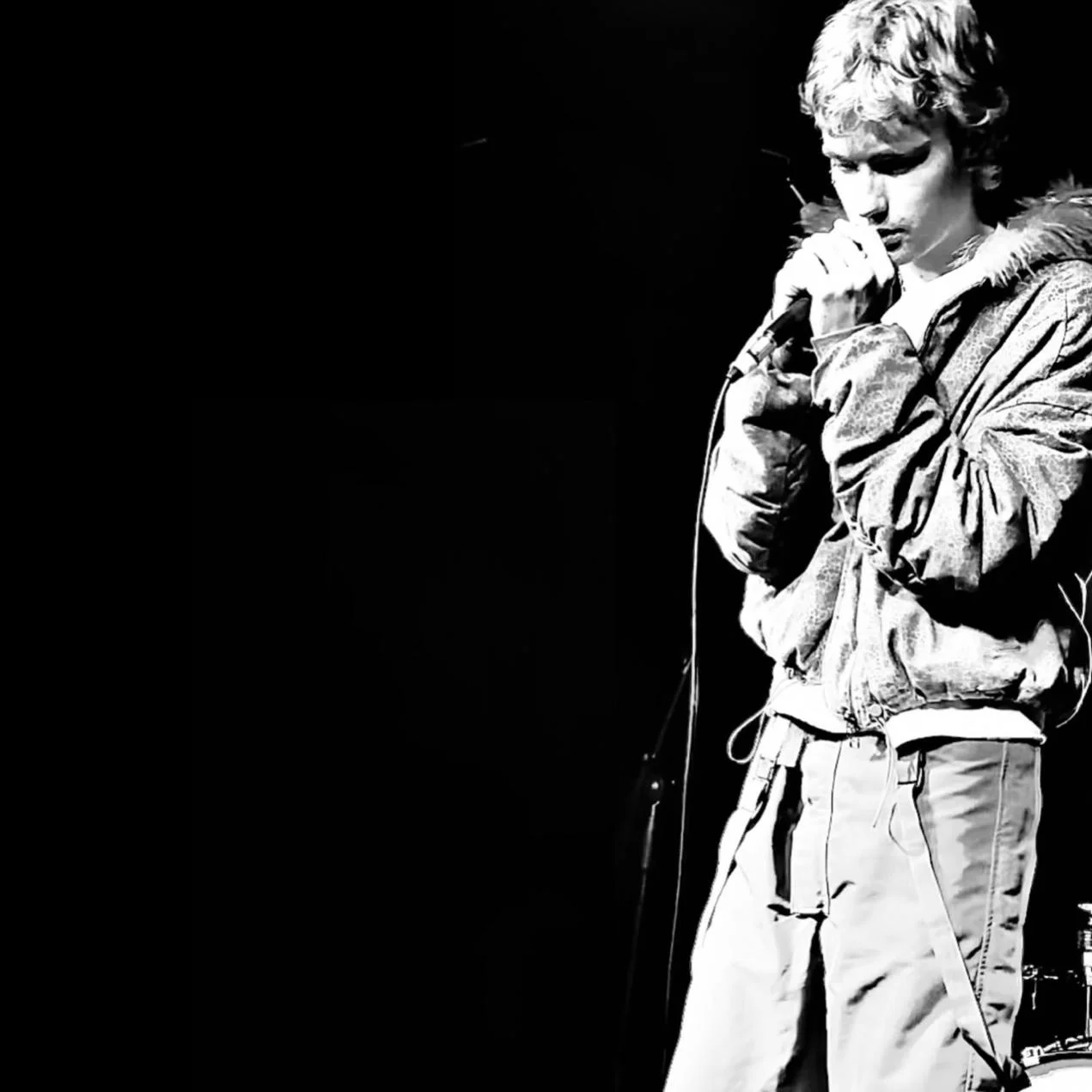
Donate now!
Each donation makes a huge difference. Thank you!
Alex Bernard-Bell
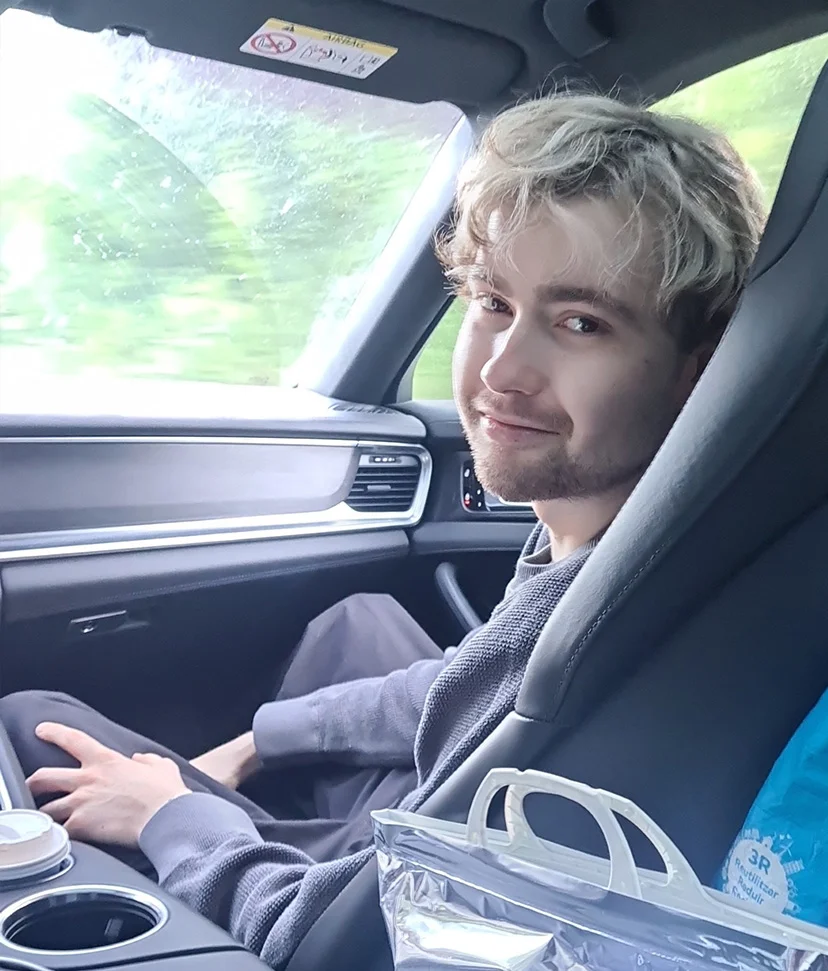
In October 2021, Alexander Bernard-Bell was diagnosed with brain cancer at the age of 20. For the previous year he had been suffering from relentless migraines and papilledema (swelling of the optic nerve) which eventually led to the loss of sight in his right eye. He had a brain biopsy which revealed nothing and an operation to implant a shunt to control the pressure in his brain. It was only as a result of a third operation on his lower spine, that he was finally diagnosed with a type of paediatric low-grade glioma cancer called Diffuse Leptomeningeal Glioneuronal Tumours (DLGNT BRAF-KIAA1549 MC2).
Alexander’s diagnosis was so rare that at the time there were only 100 cases in medical history, so his parents, Katie and Martin, embarked on a global quest for answers, reaching out to oncologists, neuro-oncologists, and researchers worldwide. However, before treatment could begin, they faced a significant hurdle – a lack of sufficient tissue for necessary genomic analysis. A month later, as the cancer spread rapidly, Alex underwent another brain biopsy which gave a clearer understanding of the genetic mutation driving the cancer. With expert consensus from institutions like Toronto Sick Kids, Heidelberg in Germany, Memorial Sloane Kettering in New York and Great Ormond Street Hospital in London, a targeted drug called Trametinib (MEK inhibitor) was identified, and treatment started in early December 2021.
Alex experienced notable improvements on Trametinib, with tumour regression in the brain and spine. However, by the summer of 2022 he started to have clonic tonic seizures which were very debilitating and required yet more medication to keep them under control.
Signs of tumour progression became evident on MRI scans in early 2023. With no other targeted treatment available in the UK, the family tried to access a new drug called Tovorafenib through a clinical trial in Spain. Despite their best efforts, regulatory hurdles in Barcelona meant that Alex was not eligible for the clinical trial and he had to return to the UK in June 2023 with no idea of how to access the drug. After an unwavering eight-week campaign, the family managed to secure compassionate use of Tovorafenib (RAF inhibitor) for Alex in the UK, resulting in significant tumour reduction within six weeks.
Less than a year later however, the MRI scans once again showed signs of tumour progression and Alex started to have Status Epilepticus (back to back seizures that will not stop without medical intervention). With no other treatment available, plans were made for radiation therapy at UCLH. However, on 6 August 2024, the week before Proton Bean Therapy was due to start, Alex collapsed with his third attack of Status Epilepticus and was admitted to Charing Cross Hospital in London. Little did they know that he would never return home.
Whilst in hospital and in a cruel twist of fate, Alex contracted Herpes Simplex Virus Encephalitis and had to have an emergency craniectomy to save his life. The damage to Alex’s brain from the HSV was so severe that radiation and all chemotherapy was ruled out and the only treatment that the family were eventually able to get him was Ulixertinib (ERK inhibitor) brought into UK on a special licence from USA for compassionate use. This drug did not work and Alex died on 30 January 2025 aged 23 after 178 days in ICU.
A family’s quest
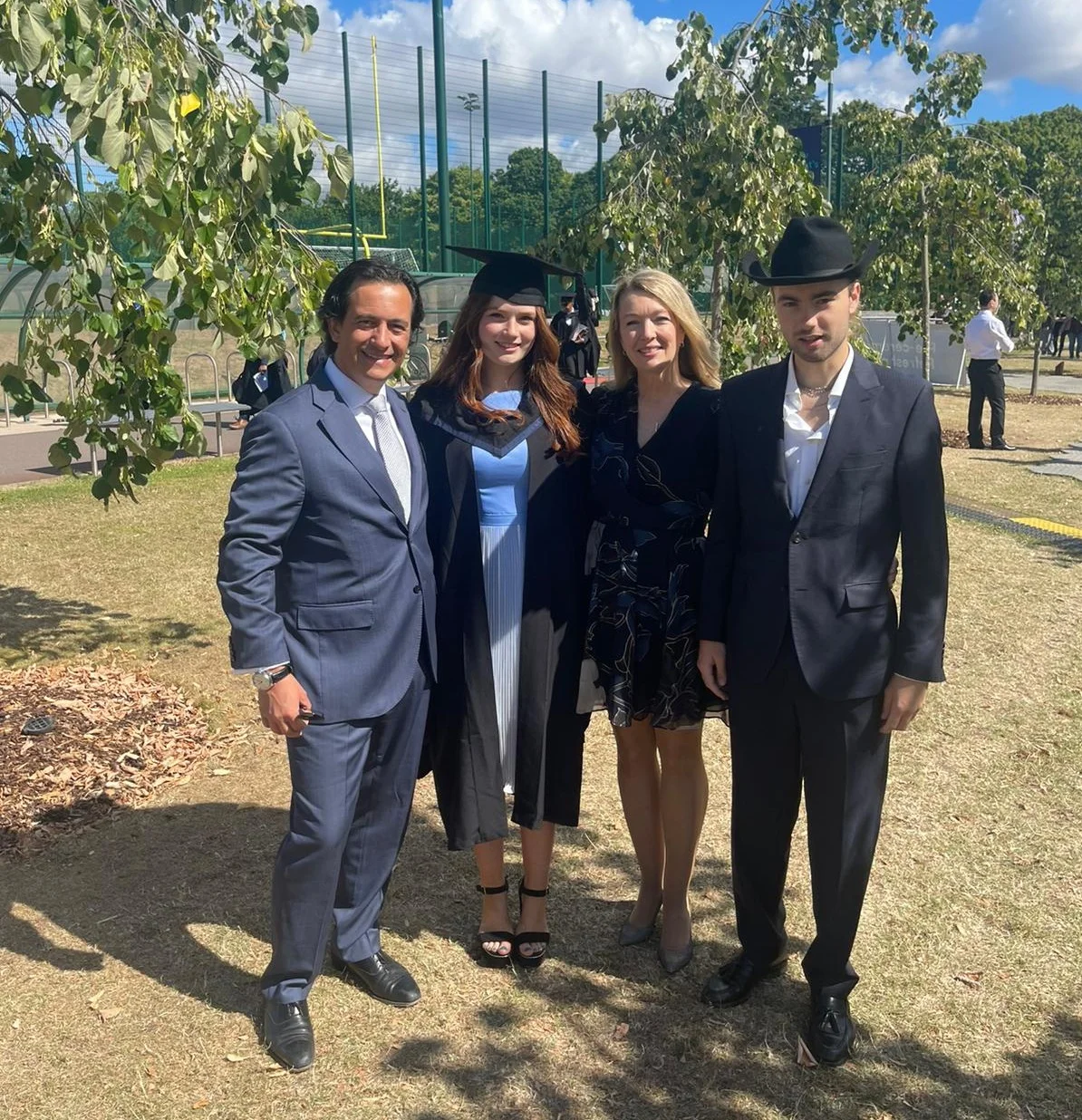
At the time of Alex’s diagnosis, the family was left feeling completely lost and bewildered. Given the rarity of Alex’s tumour type, they didn’t know where to turn, what to believe or what their next steps would be.
We were terrified at the dawning realisation that there is no cure for this rare form of cancer.
Katie Bernard, Alex’s mum
From that point on, the Bernard-Bell family became dedicated to providing information about DLGNT and building an international community of DLGNT patients. Using the group name ‘Team Syren’ (Alex was a singer song writer known as Syren) they have partnered with three world class brain tumour charities – Kindred Foundation in Canada, the Pediatric Brain Tumour Foundation in the USA and The Brain Tumour Charity – to raise awareness and funds for research into brain tumours.
“Both of my parents, but mainly my mum has spent half of her day, every day, researching it, getting in contact with the right people, getting people in contact with each other, as well, to really push this. It’s helped a lot. She’s still doing it.” Alex’s own words, from his documentary about his DLGNT diagnosis and how his music helped him process his emotions.
In February 2024, Team Syren, made up of Alex’s father and four friends, completed an extraordinary challenge in the Swiss Alps. Over four days, they ascended 8,848 meters (the height of Mt Everest) on skis. This incredible feat, known as the Everest in the Alps challenge, transcended merely conquering a mountain, it was about defeating a formidable adversary – brain cancer.
It’s an entirely new challenge – a bit like Alexander discovering he had a brain tumour – daunting and scary. The difference is that we have options. Alex and so many other people don’t and that is why we need everybody’s help to raise funds for the research required to crack these types of cancers.
Martin Bell, Alex’s dad
The Everest in the Alps challenge raises money for the Everest Centre for Research into Paediatric Low Grade Brain Tumours, which is a groundbreaking international research initiative bringing together experts from Germany and the UK.
Alex’s legacy continues
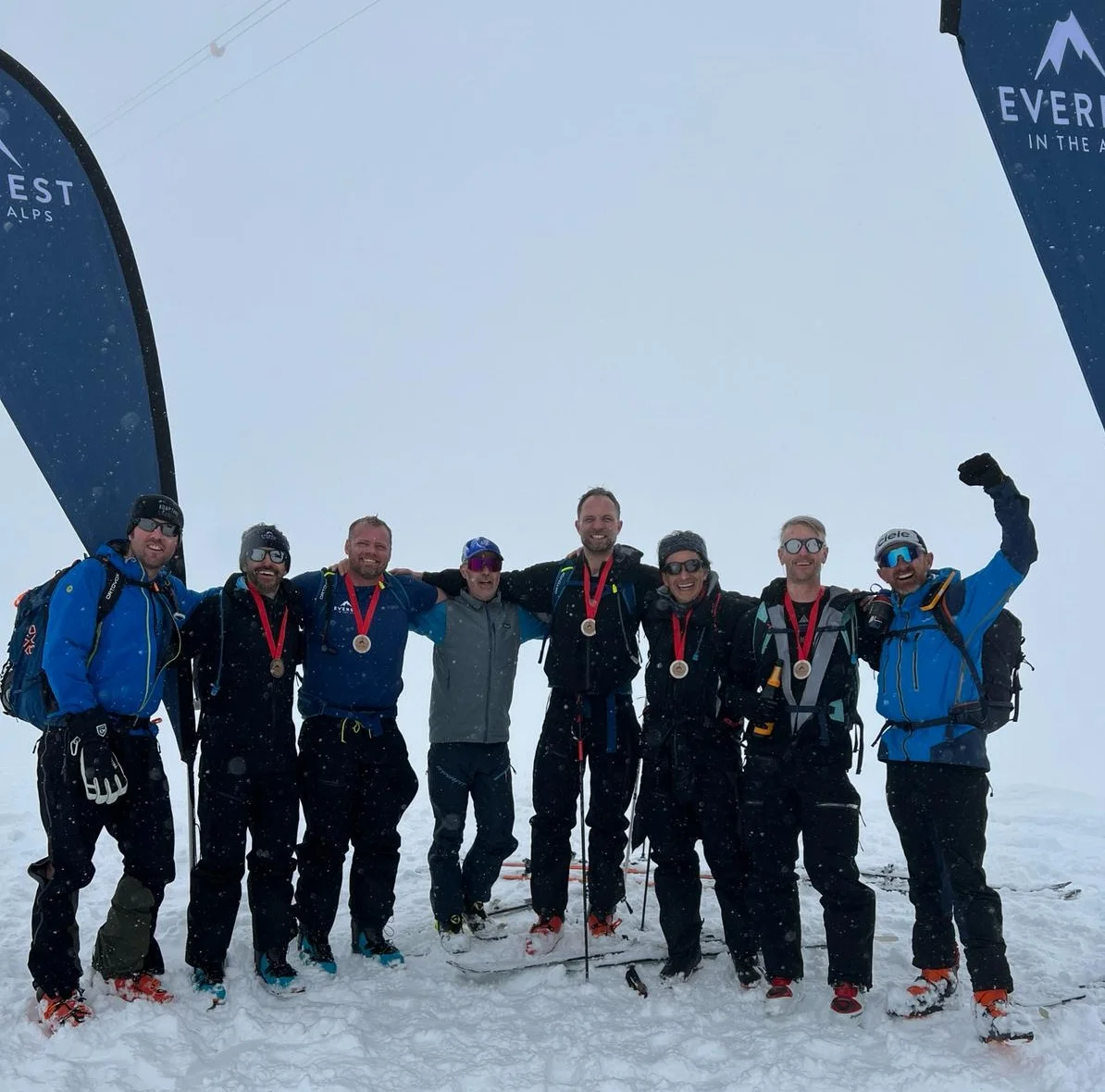
In 2025, Alex Bernard-Preston, Katie and Martin’s son-in-law, completed three massive challenges to raise money and awareness for brain cancer research. He ran a marathon on 25th January, shortly before Alexander’s passing. Alex and his mother, Annabel Preston, then ran the London Marathon on 27th April, the day after his wedding to Hannah, Alexander’s sister and Young Ambassador at The Brain Tumour Charity. In August, Alex and two of his friends took part in the Brighton and Hove Triathalon, coming first place in their category.
Martin, in the meantime, has been planning to take on another Everest in the Alps challenge in early 2026, so if you are interested in joining, you can find out more here.
So far Team Syren have raised over £130,000 for the Brain Tumour Charity and created a $650,000 fund in collaboration with Kindred Foundation and PBTF in Canada/USA. All funds raised go to vital research into diffuse low grade gliomas in memory of Alexander Bernard-Bell aka Syren.
Alexander was radiant with creativity, kindness, and quiet strength. His passion was music, he performed under the name Syren, which he poured his heart and soul into. Even as he faced his diagnosis, he found meaning through songwriting, often expressing his experience through his lyrics. His kindness, wit, and loyalty touched everyone who crossed his path. In his honour, our family has created Team Syren, a group that takes on various challenges, from Everest in the Alps to the London Marathon, to raise money for vital brain cancer research.
Hannah Bernard-Bell, Alex’s sister
